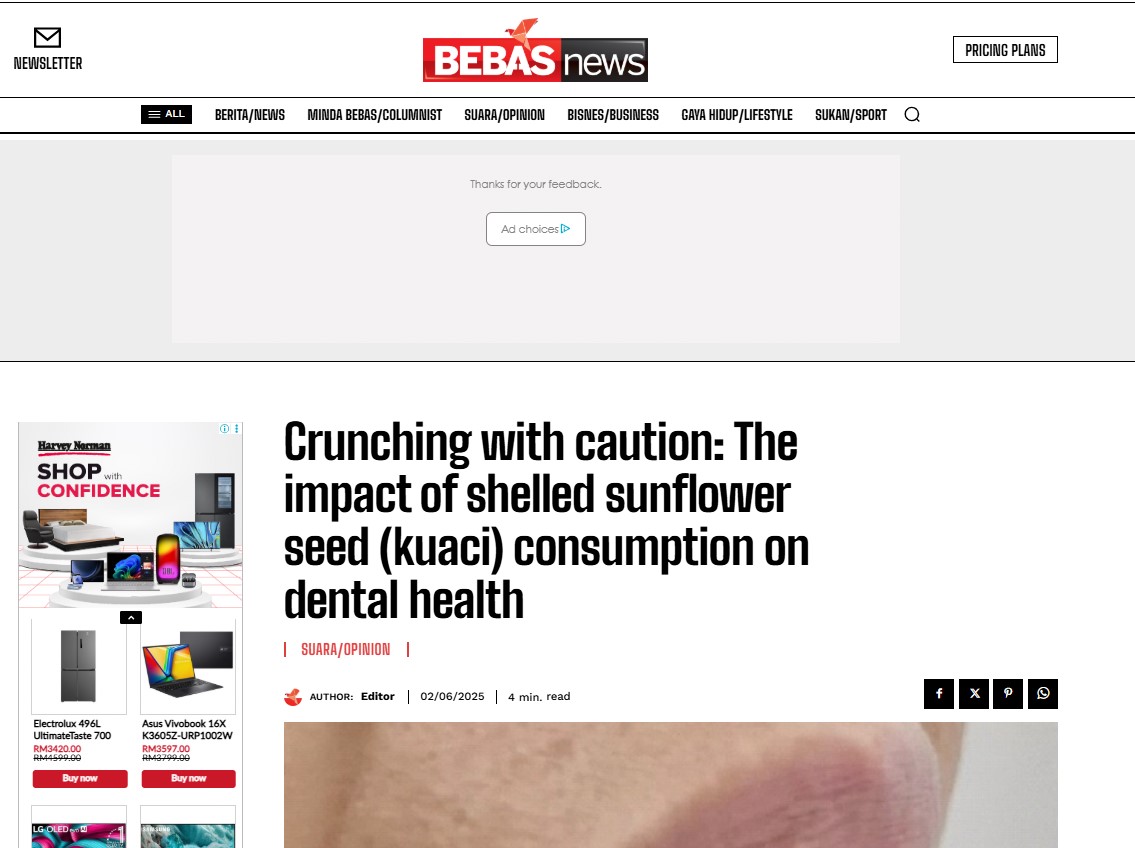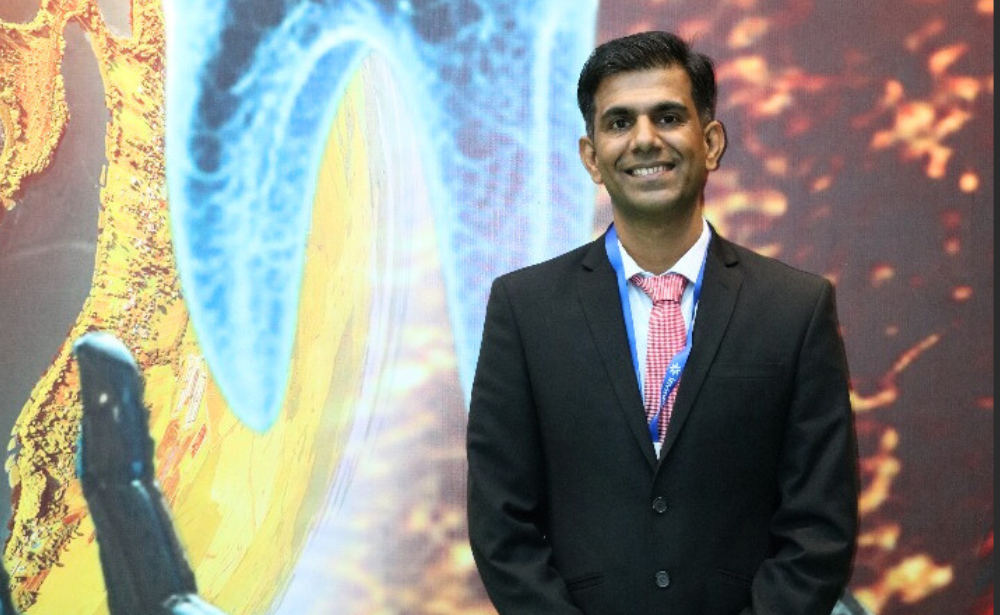Crunching on sunflower seeds may be a comforting pastime for many across Southeast Asia, but it comes with hidden costs that are rarely discussed. In an insightful article published by BEBAS News, Dr Suresh Kandagal Veerabhadrappa, Associate Professor from the Faculty of Dentistry at SEGi University, sheds light on the often-overlooked dental consequences of consuming shelled sunflower seeds — commonly known as kuaci. What appears to be a harmless cultural habit can, over time, contribute to significant oral health issues.
The traditional method of biting down on hard kuaci shells using the front teeth to extract the kernel may lead to tooth surface loss, gum irritation, and even jaw muscle strain. These effects can become more pronounced with frequent consumption, especially when paired with other poor dental habits or underlying oral conditions. As many individuals consume these seeds regularly during social events, long drives, or as a casual snack, the risk can accumulate without noticeable warning signs — until it’s too late.
The concern is not just anecdotal. The World Health Organization has consistently highlighted the growing burden of oral diseases, which affect nearly 3.5 billion people globally. Poor oral health is not only painful and expensive to treat, but it also impairs overall well-being, nutrition, and quality of life. By raising awareness about the potential dental impact of something as common as kuaci, SEGi’s Faculty of Dentistry is contributing to larger efforts to promote preventive care and sustainable oral health practices.
Rather than urging the public to give up sunflower seeds altogether, the article advocates for safer alternatives — such as switching to pre-shelled seeds or using molars instead of incisors to reduce pressure on vulnerable front teeth. This small shift in behaviour, paired with regular dental check-ups, can go a long way in preserving long-term oral health while still enjoying cultural traditions.
As a university committed to producing socially responsible health professionals, SEGi believes that education must extend beyond the clinic and into everyday lives. By empowering communities with practical knowledge, this initiative supports the global call to make universal oral health a reality — one bite at a time.
This event is organised in support of the following United Nations Sustainable Development Goals (SDG):
SDG 3 – Good Health and Well-being
SDG 4 – Quality Education
SDG 12 – Responsible Consumption and Production


